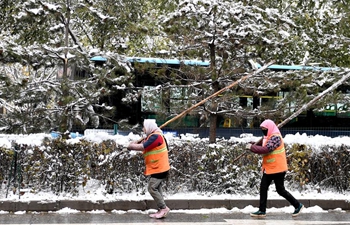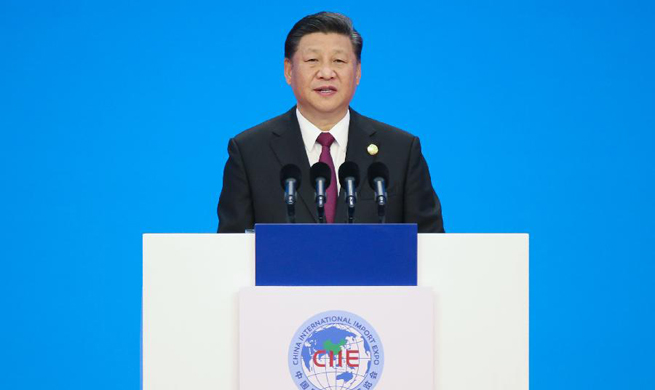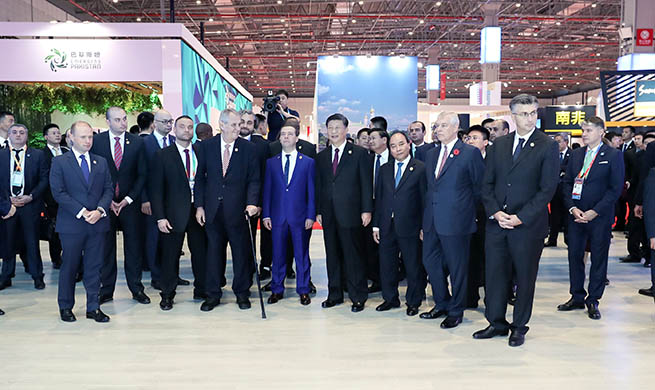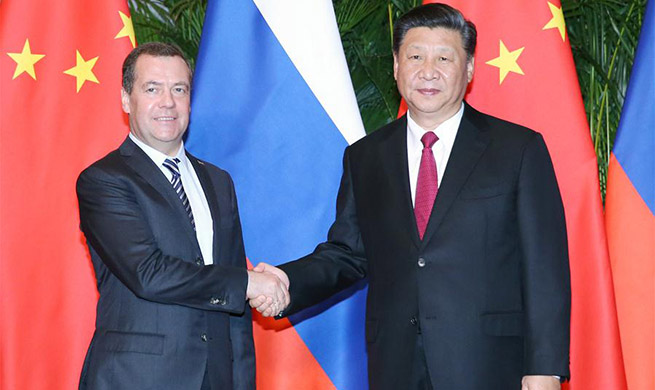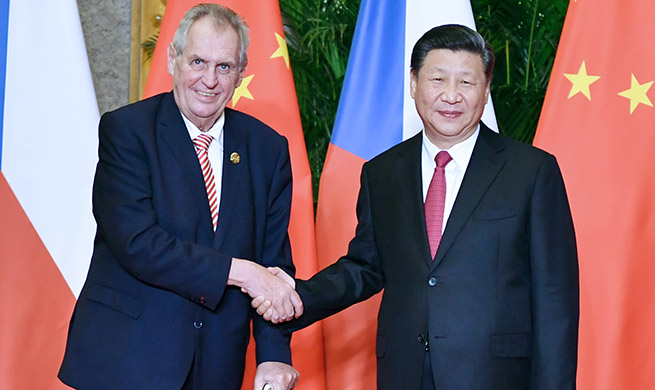By Anna Strumpel
BERLIN, Nov. 5 (Xinhua) -- The recent disappearance of the Washington Post columnist Jamal Kashoggi in the Saudi Consulate in Istanbul, Turkey, has reignited a long-standing debate in Germany over the country's lucrative arms sales to the oil-rich Gulf kingdom.
Following Kashoggi's killing, German politicians have issued unusually explicit statements of condemnation on a subject that is traditionally tip-toed around in Berlin.
German Foreign Minister Heiko Maas called for his government to refrain from approving any arms sales to Saudi Arabia until investigations into the case have been completed. Similarly, Chancellor Angela Merkel (CDU) said that she agreed "with all those who say that arms exports, which are already limited, cannot happen given the circumstances in which we are now in."
Whatever the final outcome of an ongoing investigation by Saudi authorities to find the culprits behind what is now officially being treated as a case of pre-meditated assassination, it is already clear that the incident will place further strain on the fraught relationship between Berlin and Riyadh.
Even before the Kashoggi case, decisions by the federal government to authorize arms sales to Saudi Arabia caused a heated domestic debate. Critics of the export argue that it violates the "grand coalition" agreement which states that Germany will not deliver weapons to countries directly involved in the ongoing Yemen war.
Speaking to Xinhua, Tobias Fella, European foreign- and security policy expert at the Friedrich-Ebert Stiftung, explains that 254 million euros of German arms exports to Saudi Arabia which were recorded since March 2018 have largely gone through on a technicality.
There is, of course, no strict legal obligation for Germany's ruling parties to comply with their own coalition agreement, as it is merely a memorandum of understanding. Even if there were, the pact signed by the CDU, CSU and SPD explicitly exempt weapons deals that were closed before the current government took power. As a consequence, Saudi Arabia remained the second largest national recipient of German arms at the end of September this year.
Norbert Roettgen (CDU), who chairs the foreign affairs committee, stated that if there are no decisive consequences in the Saudi Arabian leadership in the very near future, then there has to be "a stop of all arms shipments, even of those that have already been authorized", in an interview with German newspaper Welt am Sonntag.
This view has been reiterated by Anton Hofreiter, leader of the German Green Party parliamentary group, "We need new laws on controlling arms exports, so human rights are not neglected anymore", green party politician Hofreiter said.
It is unclear at this point, if the disappearance of Kashoggi will have a long-term impact on the approach of Germany to exporting arms to countries with poor human rights records, including Saudi Arabia, considering that the debate has been going on for many years."
Although Germany's Ex-Foreign Minister Sigmar Gabriel (SPD) announced as early as 2014, that Germany would stop arming certain regimes outside of the EU and revise its arms export policy accordingly, the Eurozone's largest economy has since failed to take any concrete steps to put words into action. Similarly, the EU has yet to come up with a coherent strategy. An EU-wide embargo against Saudi Arabia demanded by the bloc's parliament in 2016 never materialized.
Addressing the reason behind the repeated failure to revise Germany's arms exports to the Middle East, Michael Bauer, deputy head of MEIA, suggests that the lack in public discussion and discrepancy between stated objectives and actual policies may be reflective of a broader dilemma faced by the German defense industry.
"Germany faces the challenge of wanting to be a capable actor in international security issues, which requires an arms industry and military capabilities to back this aspiration. However, the German demand cannot sustain a respectable arms industry", says Bauer.
This means that Germany is forced to export arms, also beyond the European market. At the same time, the Federal Ministry of Economic Affairs and Energy states on its website that "exports of military equipment are not an instrument of economic policy and are different from other exports." While Europe is troubled to "pool and share" arms, this endeavor will potentially suffer from Brexit and is still in the early stages, Bauer adds.


